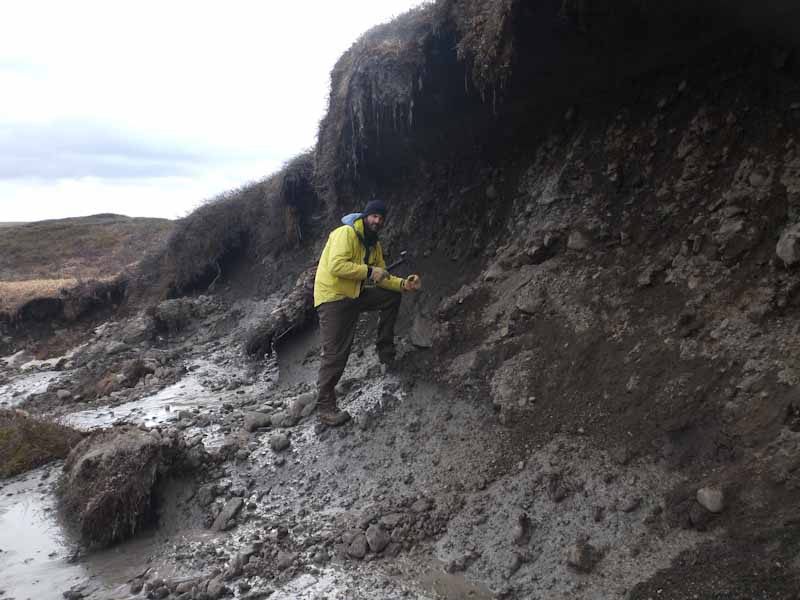For the third time in less than 12 months, the UConn academic community has come together quickly to address a subject of current concern and is offering another “pop-up” course this spring semester.
“Climate Crisis: Take Action” is a free, one-credit course that will be taught asynchronously by UConn faculty from schools and colleges from across the university.
One version of the course will be offered for undergraduate and graduate students (UNIV3985). This eight-week course begins on Monday, March 1 and ends on Wednesday, April 28. Interested students can register HERE.
The second version of the course has been designed for staff and faculty, who can self-enroll through HuskyCT’s landing page. This course will start on Monday, March 8 and end on Wednesday, April 28.
The course recognizes the fact that human-caused climate change is one of the most challenging crises facing the world, but there are solutions that exist to offer hope for addressing the challenge now. The course will take a transdisciplinary approach to the issues of climate change in traditional areas such as science, social science and the humanities and then reaching out to non-traditional areas such as public policy and business.
The idea for the course originated from the UConn Reads planning for this year, to support the theme of environmental justice and human rights.
UConn also had an Anti-Black Racism course both this semester and in the fall 2020 semester and one on the COVID-19 pandemic in the spring 2020 semester. Both of those classes were offered to the undergraduate, graduate and staff/faculty populations at UConn. The Center for Excellence in Teaching and Learning has been the coordinating point to develop each of these pop-up courses in partnership with several offices across the University.
“This course really offers an opportunity to share what we know about the climate crisis, but more specifically, not just to share the gloom and doom, but to share that we have the capacity to solve this crisis,” says Arden Chair of Ecology and Evolutionary Biology Mark Urban, who serves as one of the faculty coordinators for the class.
“We want to give the tools to UConn Nation to solve the climate crisis through a wide range of actions and we want to do that in a way that is not just the science, but brings in all disciplines at UConn and how we deal with problems of any kind,” he says.
Urban is joined by associate professor and director of the Environmental Studies program Carol Atkinson-Palombo, professor of psychology Kerry Marsh, and professor of geography Anji Seth as the other faculty coordinators.
“I think this class shows how much expertise we have on this campus,” says Seth. “These are really big complex integrated problems that can’t be solved by one department or one small group of people. The popup class is a brilliant way to highlight the expertise of UConn faculty. These problems have an integrated nature and you have to study them in that way to address these enormous questions that are facing society.”
The course will be taught in eight modules, with topics such as “Framing the Pathways to Solving the Climate Crisis,” “Political Change and the Law,” and “Changing Hearts and Minds.”
Here is a complete look at the details of the class.
The “hearts and minds” topic is an important aspect in the the building of the class, according to Atkinson-Palombo.
“It not enough to know something in just the cognitive sense, you have to actually care about it and I would add hands and say you have to do something about it,” she says. “That’s a model for transformational learning.
“One of the most exciting things about this class is, we are coming out of it with a cause for the student. But, that cause is also for the people involved in teaching and developing the course, and we are building a community. It is really fertile intellectual ground. It is more than just a class, it is building connections among the faulty. That’s a really important part of it.”
Urban’s interest in a course like this dates back to a few years ago when he was working in Alaska as a field biologist.
“I spent a few weeks listening to the ice that had been there since the last glacial period just melting out,” says Urban. “You could hear the dripping of the water and the release of rocks that had been held in the ice for the last 10,000 years. You really got a sense of walking through that landscape that is changing so rapidly because of warming.
“I basically saw the earth disintegrating, or at least what used to be the Arctic falling apart. It made me realize I couldn’t just be a scientist and report those results in dry journals, but I had to really reach out and share those experiences with my students and the public so I have been trying to since then.”
It is an interesting time for Marsh, as she is organizing the climate change class and taking the anti-Black racism class as a student.
“It’s exciting to do both, because you can easily get so deep into your own research, that you only talk with people within your own department,” says Marsh. “And when you do go outside your own department, it’s usually for administrative purposes. This is a chance to hear the science of other areas and a wonderful opportunity to get a little taste of what others are doing.”



